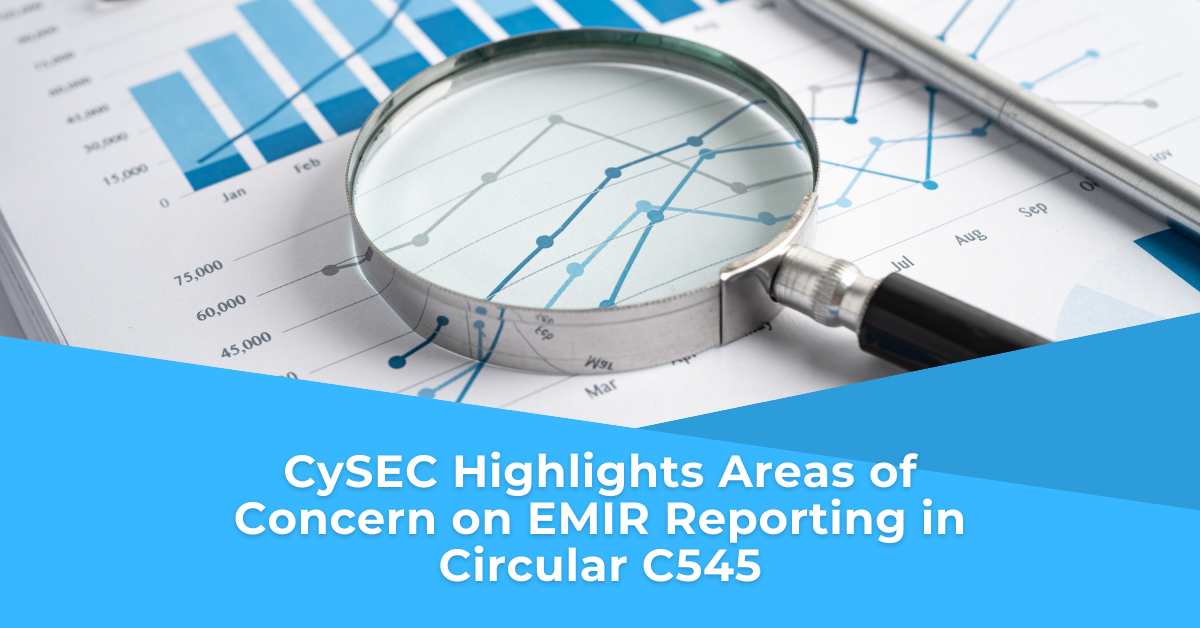Following a series of reviews that the Cyprus Securities and Exchange Commission (CySEC) has recently carried out on EMIR data quality being submitted by Regulated Entities to Trade Repositories (TR), they outlined several areas of concern in Circular C545.
The purpose of the review was to assess the quality, accuracy and timeliness of data reported to TRs. Under Article 9(1) of EMIR, all derivatives contracts that have been concluded, modified or terminated are subject to reporting obligation which must be reported no later than the following working day.
Outlined below are a list of concerns put together by CySEC.
| What are the main concerns? | what it means? | what should you check? |
|---|---|---|
| Misreporting of details | • Erroneous details observed for options, CFDs and forwards contracts • incorrect classification of Asset Class. | Asset Class and Contract Type must be submitted with correct information. • Options should have Contract Type as ‘OP’ • Forwards should have Contract Type as ‘FW’ • ISIN of a product should be submitted as Underlying Identification for a CFD • All derivatives should be reported with the accurate Asset Class |
| Incorrect status of contracts | Derivative contracts were not properly terminated with the TR. | Cross check your daily end of day open trades with the TR i.e. perform reconciliation for open trades in your system vs TR. |
| Collateralisation | Retail clients reported as Partially Collateralised. | Cross check if your clients are being reported with the correct Collateralisation Type according to Article 3b of EMIR. |
| Definition of ‘working day’ in determining deadline of reporting | Regulated Entities should follow the relevant calendar of Republic of Cyprus to determine working day or holiday. | Make sure you plan ahead of time and organise your reporting requirements around public holidays. |
| Delegated reporting rejections | Regulated Entities remain liable for any misreporting by third party entities they rely upon or delegate to. | Where reporting has been delegated to a third-party service provider, Reporting Entities should still perform checks on the trade reports submitted to the TR to maintain accuracy and quality of data. |
| Reconciliation of reports | Pairing and/or matching issues between reports of Reporting Entities and their counterparties. | Reporting details such as Unique Trade Identifier (UTI) and other common fields should be coordinated between the parties involved in reporting each trade. |
| Use of valid LEI for counterparties | Some Regulated Entities are using internal client codes to identify counterparties that are legal entities. | According to Article 3 of EMIR, legal entities should be submitted with a valid LEI in the ID of the other Counterparty field. |
This is not the first time we have seen CySEC cracking down on the accuracy of transaction reporting for both EMIR and MiFIR. High quality data plays an important role for regulators to ensure financial stability and investor protection. CySEC has also informed Regulated Entities that not complying with the stipulated regulations could make them subject to enforcement action.
If you require further assistance, feel free to contact us.




